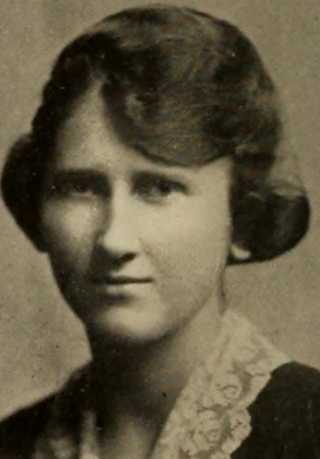Related Research Articles

New Scientist is a popular science magazine covering all aspects of science and technology. Based in London, it publishes weekly English-language editions in the United Kingdom, the United States and Australia. An editorially separate organisation publishes a monthly Dutch-language edition. First published on 22 November 1956, New Scientist has been available in online form since 1996.

Colin Hiram Tudge is a British biologist, science writer and broadcaster.
In physics or engineering education, a Fermi problem, also known as a order-of-magnitude problem, is an estimation problem designed to teach dimensional analysis or approximation of extreme scientific calculations, and such a problem is usually a back-of-the-envelope calculation. The estimation technique is named after physicist Enrico Fermi as he was known for his ability to make good approximate calculations with little or no actual data. Fermi problems typically involve making justified guesses about quantities and their variance or lower and upper bounds. In some cases, order-of-magnitude estimates can also be derived using dimensional analysis.

A question is an utterance which serves as a request for information. Questions are sometimes distinguished from interrogatives, which are the grammatical forms typically used to express them. Rhetorical questions, for instance, are interrogative in form but may not be considered bona fide questions, as they are not expected to be answered.

Notes & Queries is a weekly column in The Guardian newspaper which publishes readers' questions together with answers submitted by other readers.
Pascal Robert Boyer is an American cognitive anthropologist and evolutionary psychologist of French origin, mostly known for his work in the cognitive science of religion. He taught at the University of Cambridge for eight years, before taking up the position of Henry Luce Professor of Individual and Collective Memory at Washington University in St. Louis, where he teaches classes on evolutionary psychology and anthropology. He was a Guggenheim Fellow and a visiting professor at the University of California, Santa Barbara and the University of Lyon, France. He studied philosophy and anthropology at University of Paris and Cambridge, with Jack Goody, working on memory constraints on the transmission of oral literature. Boyer is a Member of the American Academy of Arts and Sciences.
An interrogative clause is a clause whose form is typically associated with question-like meanings. For instance, the English sentence "Is Hannah sick?" has interrogative syntax which distinguishes it from its declarative counterpart "Hannah is sick". Also, the additional question mark closing the statement assures that the reader is informed of the interrogative mood. Interrogative clauses may sometimes be embedded within a phrase, for example: "Paul knows who is sick", where the interrogative clause "who is sick" serves as complement of the embedding verb "know".

An ice spike is an ice formation, often in the shape of an inverted icicle, that projects upwards from the surface of a body of frozen water. Ice spikes created by natural processes on the surface of small bodies of frozen water have been reported for many decades, although their occurrence is quite rare. A mechanism for their formation, now known as the Bally–Dorsey model, was proposed in the early 20th century but this was not tested in the laboratory for many years. In recent years a number of photographs of natural ice spikes have appeared on the Internet as well as methods of producing them artificially by freezing distilled water in domestic refrigerators or freezers. This has allowed a small number of scientists to test the hypothesis in a laboratory setting and, although the experiments appear to confirm the validity of the Bally–Dorsey model, they have raised further questions about how natural ice spikes form, and more work remains to be done before the phenomenon is fully understood. Natural ice spikes can grow into shapes other than a classic spike shape, and have been variously reported as ice candles, ice towers or ice vases as there is no standard nomenclature for these other forms. One particularly unusual form takes the shape of an inverted pyramid.
A scene is a dramatic part of a story, at a specific time and place, between specific characters. The term is used in both filmmaking and theatre, with some distinctions between the two.
The Land Before Time VIII: The Big Freeze is a 2001 direct-to-video animated adventure musical film and the eighth film in The Land Before Time series.
Penguins are popular around the world for their unusually upright, waddling gait, their cuteness, their swimming ability and their lack of fear toward humans. Their striking black and white plumage is often likened to a white tie suit and generates humorous remarks about the bird being "well dressed".

You Can with Beakman and Jax, also known in its Spanish-language version as El Mundo de Beakman, is an American science and education syndicated comic strip by Jok Church, which ran from July 14, 1991 to July 17, 2016. The comic strip, and associated television series, featured facts about science and languages.

Anita Nair is an Indian novelist who writes her books in English. She is best known for her novels A Better Man, Mistress, and Lessons in Forgetting. She has also written poetry, essays, short stories, crime fiction, historical fiction, romance, and children's literature, including Muezza and Baby Jaan: Stories from the Quran.
The New York Times crossword puzzle is a daily American-style crossword puzzle published in The New York Times, online on the newspaper's website, syndicated to more than 300 other newspapers and journals, and on mobile apps.

Margaret Petherbridge Farrar was an American journalist and the first crossword puzzle editor for The New York Times (1942–1968). Creator of many of the rules of modern crossword design, she compiled and edited a long-running series of crossword puzzle books, including the first-ever book of any kind, published by Simon & Schuster.
Michael Edward Brooks is an English science writer, noted for explaining complex scientific research and findings to the general population.
In linguistics, a yes–no question, also known as a binary question, a polar question, or a general question, is a question whose expected answer is one of two choices, one that provides an affirmative answer to the question versus one that provides a negative answer to the question. Typically, in English, the choices are either "yes" or "no". Yes–no questions present an exclusive disjunction, namely a pair of alternatives of which only one is a felicitous answer. In English, such questions can be formed in both positive and negative forms

Alison Gopnik is an American professor of psychology and affiliate professor of philosophy at the University of California, Berkeley. She is known for her work in the areas of cognitive and language development, specializing in the effect of language on thought, the development of a theory of mind, and causal learning. Her writing on psychology and cognitive science has appeared in Science, Scientific American, The Times Literary Supplement, The New York Review of Books, The New York Times, New Scientist, Slate and others. Her body of work also includes four books and over 100 journal articles.

Christopher Hitchens was a prolific English-American author, political journalist and literary critic. His books, essays, and journalistic career spanned more than four decades. Recognized as a public intellectual, he was a staple of talk shows and lecture circuits. Hitchens was a columnist and literary critic at The Atlantic, Vanity Fair, Slate, World Affairs, The Nation, Free Inquiry, and a variety of other media outlets.

Jennifer Ouellette is a science writer and editor, based in Philadelphia, Pennsylvania and Los Angeles, California.